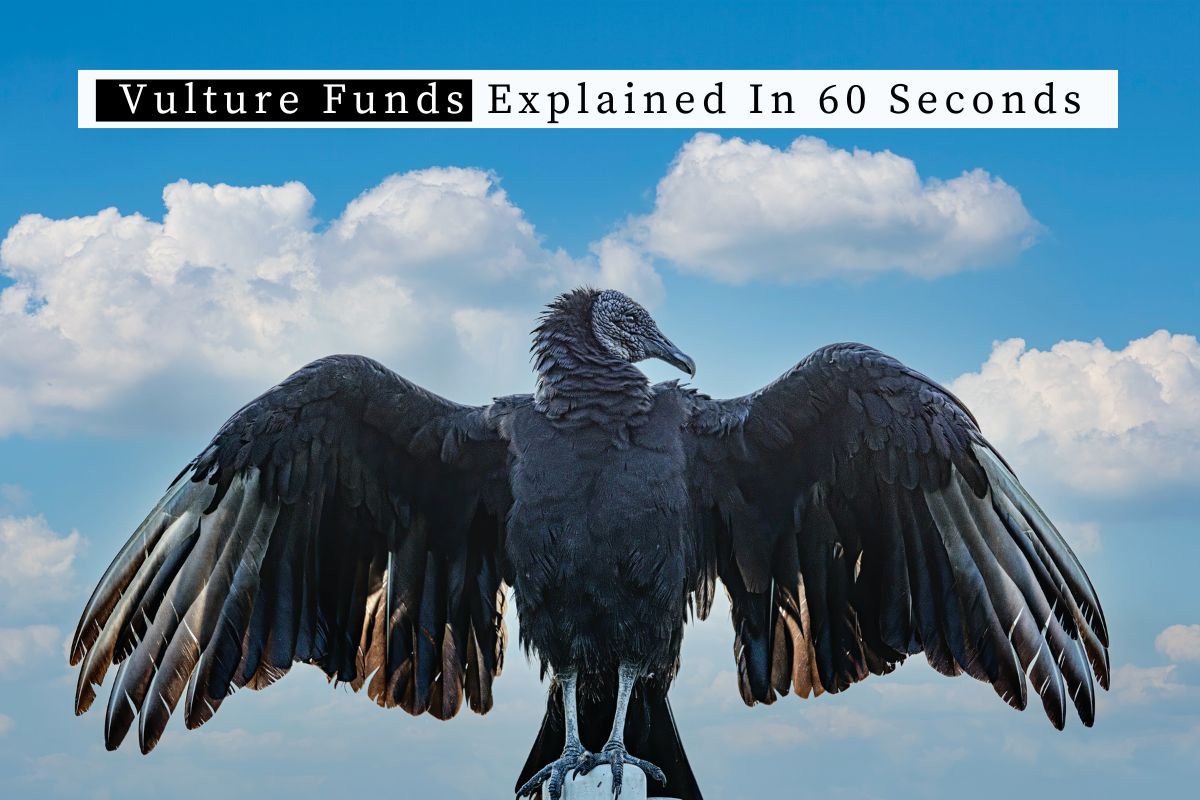Vulture funds, also known as distressed debt funds, are funds that invest in securities of distressed companies or countries with high default risk. In this article, we will delve into the world of vulture funds, how they work, their types, pros, and cons.
Table of Contents
ToggleWhat are Vulture Funds?
Vulture funds are the funds that invest in the process of vulture capitalism, which involves making money out of dying firms. They buy shares of distressed firms at significantly discounted prices and aim to make profits by using specific legal means.
The whole process starts when the portfolio manager of the vulture fund sets their eye on an investment option that they think will offer higher returns because of the high default risk involved. Once they have done their research on the targeted company or country, they approach the targeted firm in debt and settle their debt by purchasing their struggling securities from the secondary market at a rock bottom price. This way, they become the primary lender to the struggling company.
How do Vulture Funds Make Profits?
Once vulture capitalists have taken over the debt of the targeted company, they set very aggressive financial goals to reap out profits at any cost. Generally, there are three ways through which they earn profits:
- If the firm performs well and is able to clear the debt that it owes to the vulture funds.
- By selling or stripping off some of the company’s assets to ensure better returns. This is called asset stripping.
- If the firm or the country is unable to pay its debt, then the vulture funds recover their investments by taking the debtors or the original issuers of the security to court to recover their debt.
The Impact of Vulture Funds on Companies and Countries
Vulture funds come at a very high-interest rate, and if the firm does not meet their payouts, the vulture capitalist will take control of some of the company’s assets and even lease them back to the same assets to the company at a very high-interest rate. This will totally deflate a struggling company or economy.
Vulture capitalists are also known to reduce the number of employees in the firms that they invest in, which generally has a negative impact on the employment rate.
The Pros and Cons of Vulture Funds
Vulture funds have advantages and disadvantages. They play a pivotal role in reallocating resources in the economy by taking out people or resources from a place where they are not being optimally utilized to a place where they can be better utilized. They help in reviving the failing businesses and even governments.
However, vulture funds come at a very high-interest rate and can negatively impact the employment rate. They can also reduce the number of employees in the firms that they invest in.
Investment Areas of Vulture Funds
Vulture capitalists make investments in highly profitable yet highly risky markets. They make investments in real estate markets, debt securities of loss-making companies, especially in developing nations, and equity shares of companies that can provide higher returns.
Conclusion
In conclusion, vulture funds have both pros and cons, and their impact on companies and countries is significant. It is important to understand the workings of vulture funds and their impact on the economy.
FAQs
What are vulture funds?
A: Vulture funds are investment funds that purchase securities or debts of distressed companies or countries with high default risk. They aim to make a profit by using legal means to recover the debt or turn the company around.
How do vulture funds make a profit?
A: Vulture funds make a profit in three main ways: (1) If the firm performs well and is able to clear the debt, (2) by asset stripping, where the vulture capitalists sell or strip off some of the company’s assets to ensure better returns, or (3) by taking the debtors or original issuers of the security to court to recover their debt.
Why do companies or countries resort to vulture funds?
A: Companies or countries may resort to vulture funds when they have lost all hope of revival and may go bankrupt or default at any point in time.
What are the disadvantages of vulture funds?
A: Vulture funds come with very high-interest rates, and if the firm does not meet their payouts, the vulture capitalists may take control of some of the company’s assets and lease them back to the company at high-interest rates. They may also reduce the number of employees in the firms they invest in, which has a negative impact on the employment rate and the economy.
What are the advantages of vulture funds?
A: Vulture funds can play a pivotal role in reviving failing businesses and even governments. They can also help reallocate resources in the economy by taking them from places where they are not being optimally utilized to places where they can be better utilized.
Are vulture funds good or bad?
A: The answer to this question is subjective and depends on various factors. While vulture funds may provide a lifeline to distressed companies or countries, they also come with significant drawbacks that can harm the economy and employees. Ultimately, it is up to the reader to weigh the pros and cons and make an informed decision.
Additional Resources
To keep learning and advancing your career, we highly recommend these additional resources:
Leveraged Buyout (LBO) Explained in 60 Seconds
Precedent Transactions Analysis (PTA) Explained in 60 Seconds
What is a Hedge Fund? A Complete Guide to Understanding Hedge Funds
Hedge Funds Explained in 60 Seconds












